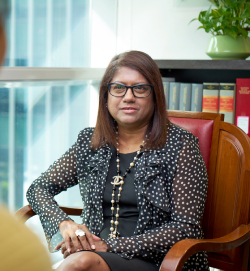Q: Bullying and cyber-bullying is on the rise, despite many campaigns within schools to raise awareness. What is the view of the law in relation to children and is it taken seriously in Singapore? Do you know of any example cases?
A: Bullying in school is usually referred to the school Principal to take appropriate action. The law relating to children is taken seriously in Singapore. Offences involving children (Children and Young Persons Act) are taken seriously in Singapore. Bullying might seem like a trivial matter, but should it go out of hand, wherein serious injuries are caused to the victim, the Police would then step in and the cases are dealt with in the Subordinate or Juvenile Courts.
Current laws do not specifically target cyber-bullying, but existing laws such as the Computer Misuse Act and tort of harassment for example, can be applied against cyber-bullying. A victim of cyber-bullying may also obtain a civil injunction from the court to restrain the perpetrator. These however apply mostly to adults, and cases in which children are involved are very rare. This is because the perpetrators are children who are still young, and they may not understand what it means to respect and treat another person fairly or even behave rationally. Therefore parents are advised to always bring the matter up to the school before approaching the court, as the school is in a better position to mediate, settle the matter amicably and counsel those involved, so that it is better for all parties, without incurring a costly legal fee in the process. There have been a number of tragic cases involving cyber bullying such as the Myanmar girl, Khine, who killed herself after her boyfriend posted “bad comments” on her Facebook page and accused her of being a “loose woman”.
Q: As risk-takers some teenagers are tempted by under-age drinking, clubbing, and drugs. What is the view of the law given Singapore’s zero tolerance for drugs? What do the authorities tend to do with these kinds of cases?
A: In the case of juvenile drinking, consumption or mere purchase of alcohol is not permitted to anyone below 18 years. People found creating pandemonium in public places under the influence of alcohol are subjected to imprisonment and hefty fines.
In the case of juvenile drug abuse, the consequences are equally severe as those for adult offenders. Justice Lee Seiu Kin, in effect, ruled that the Misuse of Drugs Act (MDA), which has mandatory sentences for repeat offenders, trumps the Children and Young Persons’ Act (CYPA) – unless the juvenile had been put on probation or discharged with conditions.
The procedure when the authorities encounter such a case is that the Central Narcotics Bureau will first assess the facts and circumstances of each juvenile case before deciding whether to place the offender under CNB supervision, or to charge the person in Juvenile Court.
The Juvenile Court is the deciding factor here: If the judge orders probation for a drug abuser, he will be treated as a first-timer if he reverts to the habit later as an adult. But if the judge decides to send the abuser to a home, the adult rules would apply if he were to be charged for the same offence as an adult.
For underage smoking, the child/young person can be hauled to court and given fines of between $100 and $300. Counselling is also provided. A person guilty of underage clubbing is counselled either by his school or counsellors from the child guidance clinic of the Ministry of Health.
The person can also be referred to his school for counselling, or to family service centres. If a child/young person is below the age of 16 and beyond parental control (BPC), the family can file a BPC complaint with the Juvenile Court. The Singapore Children Society can intervene and provide counselling to the youth and the parents, or significant other. There is also a programme called Beacon Works, wherein parents can engage a counsellor for the youth or approach a family service centre for intervention.
Q: What advice do lawyers have for parents who are involved in any type of discussion with the police on behalf of their child?
What is the culturally accepted protocol? A: Probation officers usually ask to speak to parents as well as the child, to find out more about the child’s family circumstances and to advise parents on how they can assist in their child’s reformation. Therefore, officers are understanding people and parents are advised to be honest with the police and trust them to do what is necessary.

